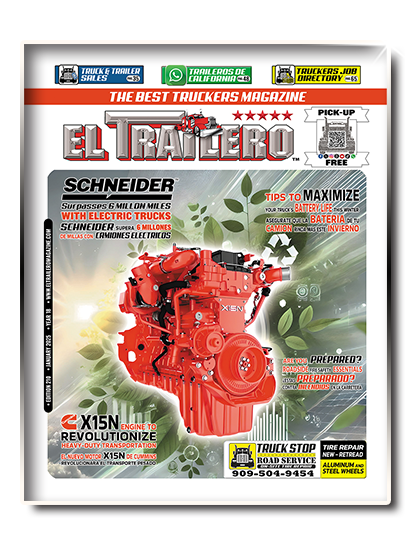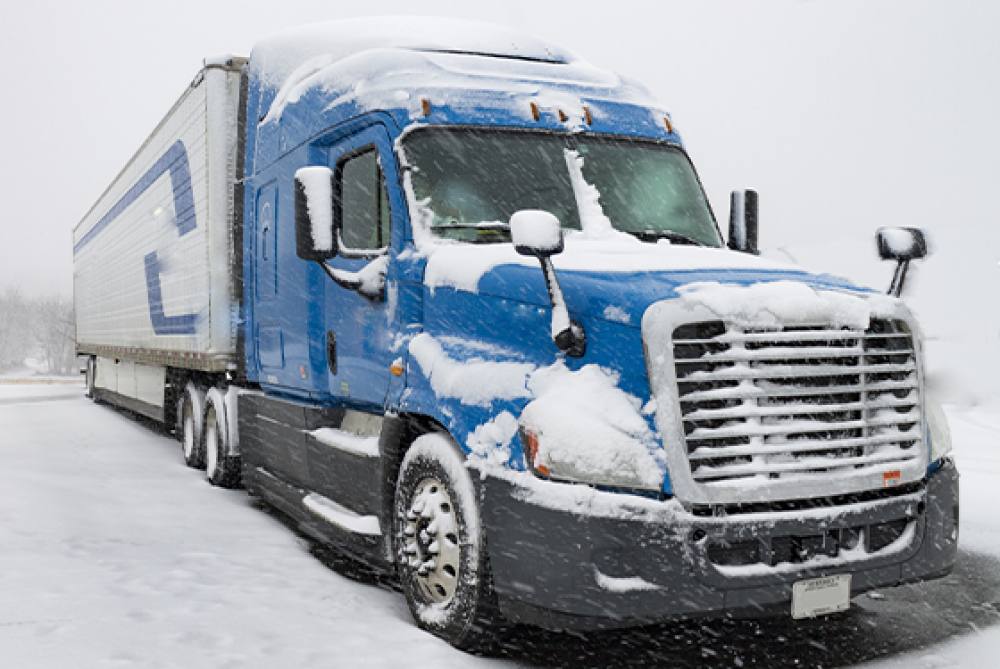 |
|
 |
Get our FREE |


As winter approaches, truck batteries face one of their toughest challenges. Low temperatures significantly reduce their capacity, potentially causing starting issues, costly downtime, delays, and decreased operational efficiency. To mitigate these problems, implementing proper care and maintenance strategies is essential.
Battery Types and Their Strengths
• AGM Batteries (Absorbent Glass Mat): Known for their reliability in cold climates, AGM batteries deliver high cold-cranking amps, making them ideal for engine starts in low temperatures. However, their performance declines under continuous loads, such as those generated by auxiliary power units (APUs) and other systems.
• LiFePO4 Lithium Batteries: Excellent for deep-cycle applications, these batteries offer longer lifespans and faster recharge times. However, they are not suitable for engine starting due to the high initial power demand.
The Hybrid Battery Solution
The most efficient approach combines both technologies:
• AGM Batteries: Dedicated solely to engine starting.
• Lithium Batteries: Handle auxiliary applications.
This hybrid setup optimizes performance in extreme conditions, protects starter batteries, and reduces overall wear, extending battery life.
Electric APUs: Enhancing Efficiency
Fully electric APUs powered by lithium batteries eliminate the need for engine idling during rest periods. These units efficiently provide heating, cooling, and power for electrical devices, reducing fuel consumption and emissions while improving driver comfort and sustainability.
Proven Results in Cold Climates
Testing in cold regions like Canada and the northern United States shows that fleets using hybrid systems experience less downtime, reduced battery wear, and improved operational efficiency. Operators especially appreciate the maintenance cost savings and the lighter weight of lithium battery banks.
Conclusion
A hybrid battery strategy not only enhances fleet reliability during winter but also reduces operational costs and supports sustainability. Truck Stop Road Service recommends fleets adopt this approach to ensure optimal performance in the harshest conditions.
For years, federal Hours of Service (HOS) regulations have been viewed as a key tool for reducing commercial truck crash...
read more...Although low libido is often associated with age or medical issues, it is increasingly affecting young truck drivers&mda...
read more...The political conflict between U.S. Transportation Secretary Sean Duffy and California Governor Gavin Newsom escalated o...
read more...California’s push for its controversial “clean truck” regulations has just taken a devastating blow. A...
read more...

